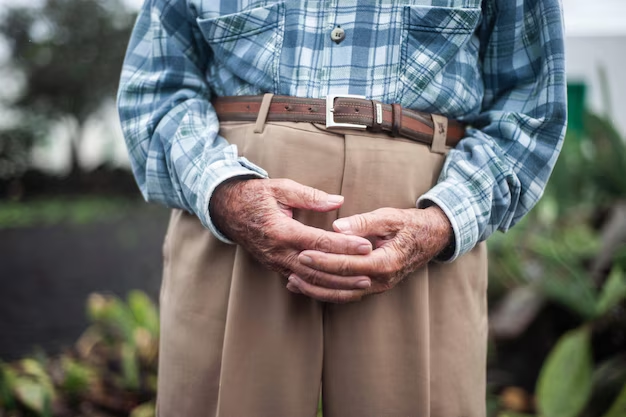Your Guide to Is Urinary Incontinence a Normal Part Of Aging
What You Get:
Free Guide
Free, helpful information about Incontinence FAQ and related Is Urinary Incontinence a Normal Part Of Aging topics.
Helpful Information
Get clear and easy-to-understand details about Is Urinary Incontinence a Normal Part Of Aging topics and resources.
Personalized Offers
Answer a few optional questions to receive offers or information related to Incontinence FAQ. The survey is optional and not required to access your free guide.
Is Urinary Incontinence Just an Inevitable Part of Aging?
A common misconception surrounding urinary incontinence is that it's simply a normal part of aging—a humbling rite of passage as we grow older. But is this really the case? While the prevalence of urinary incontinence does increase with age, it's crucial to understand that it is not an unavoidable consequence of aging. This condition can affect anyone, regardless of age, and should be addressed to improve quality of life.
Understanding Urinary Incontinence
Urinary incontinence is the involuntary leakage of urine, and it can occur for various reasons. Factors such as weakened pelvic floor muscles, certain medications, urinary tract infections, and lifestyle choices like diet may contribute to the condition. While older adults may experience incontinence more frequently, many younger individuals, including women who’ve given birth or athletes, may also encounter these issues due to different risk factors, not just aging.
Is Incontinence Unavoidable for Seniors?
The short answer is no. Although the risk increases with age due to changes in the body, other health conditions, and medications, it doesn’t mean incontinence is unavoidable or that one must simply live with it. Frequently, urinary incontinence can be managed or even reversed with lifestyle adjustments, pelvic floor exercises, or medical treatments. Seeking medical advice is essential, as a healthcare professional can recommend targeted treatments or interventions, such as physical therapy or medication, that can address the underlying causes.
Taking Control: Resources and Supportive Programs
Managing urinary incontinence often requires different approaches, including medical evaluation, lifestyle modifications, and sometimes financial planning to access necessary care. Luckily, there are resources available:
Government Aid and Assistance
Government programs may offer financial assistance to help cover medical costs associated with managing urinary incontinence.
- Medicare and Medicaid: These programs can help cover the costs of doctor visits and prescribed treatments.
Financial Assistance Options
Unexpected medical expenses can strain finances, but there are solutions aimed at minimizing the impact:
Medical Debt Relief Programs: Designed to assist those struggling to pay health-related expenses, often providing counseling and solutions for managing debt without financial strain.
Non-Profit Services: Community non-profit programs may provide financial assistance or free resources for those in need.
Educational and Supportive Tools
Understanding how to manage and live with urinary incontinence can immensely help individuals cope:
Workshops and Seminars: Education on lifestyle changes and pelvic health exercises can transform how individuals manage symptoms.
Online Educational Resources: Free and accessible online courses and webinars to educate yourself about urinary health and the options available.
Practical Lifestyle Tips
Sometimes, small steps can make a big difference:
Dietary Changes: Reducing caffeine and alcohol intake could decrease the frequency of incontinence episodes.
Bladder Training: Structured programs teach how to progressively increase the intervals between urinating, improving control over urinary function.
Available Support Programs at a Glance
- 🏥 Medicare & Medicaid: Financial coverage for medical appointments and treatments.
- ⚖️ Medical Debt Relief Programs: Support to manage and minimize debt.
- 🤝 Non-Profit Community Support: Free resources for financial help.
- 🏋️ Pelvic Floor Exercise Classes: Improve muscle strength and control.
- 📚 Online Courses & Webinars: Educate yourself on managing symptoms.
- 🥗 Lifestyle Workshops: Tips on dietary and lifestyle adjustments.
Urinary incontinence should not be dismissed as just a part of aging. With the right support and resources, individuals can lead fulfilling, confident lives—regardless of age.
What You Get:
Free Incontinence FAQ Guide
Free, helpful information about Is Urinary Incontinence a Normal Part Of Aging and related resources.

Helpful Information
Get clear, easy-to-understand details about Is Urinary Incontinence a Normal Part Of Aging topics.

Optional Personalized Offers
Answer a few optional questions to see offers or information related to Incontinence FAQ. Participation is not required to get your free guide.


Discover More
- a Patient You Are Caring For Uses Incontinence Briefs
- Are Incontinence Products Tax Deductible
- Are Incontinence Supplies Covered By Medicare
- Are Incontinence Supplies Tax Deductible
- Can a Bladder Infection Cause Urinary Incontinence
- Can a Kidney Stone Cause Incontinence
- Can a Urinary Tract Infection Cause Incontinence
- Can a Uti Cause Incontinence
- Can Constipation Cause Incontinence
- Can Constipation Cause Urinary Incontinence
